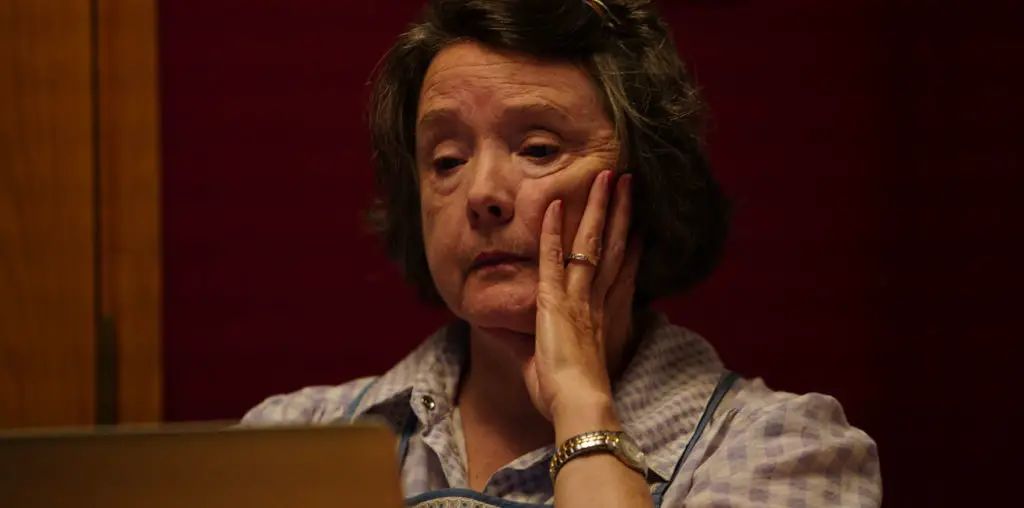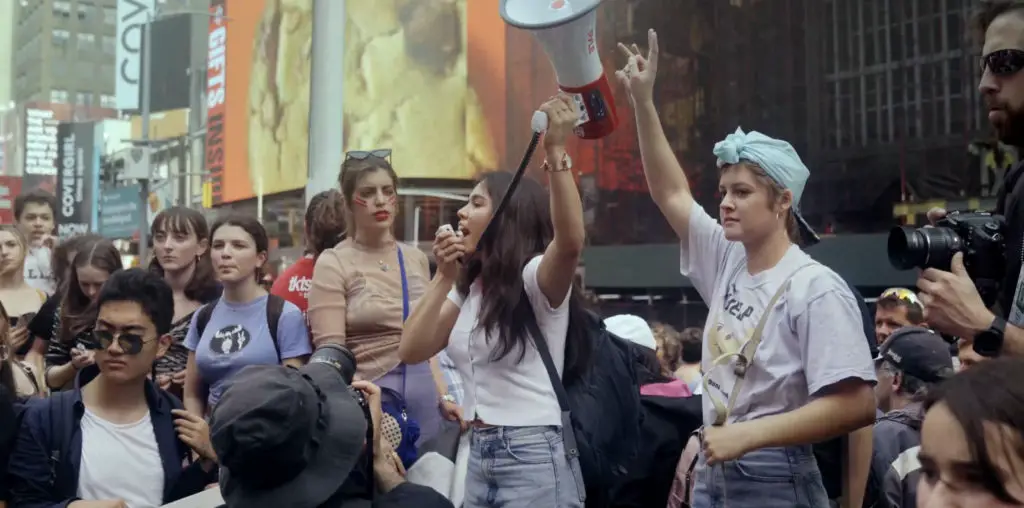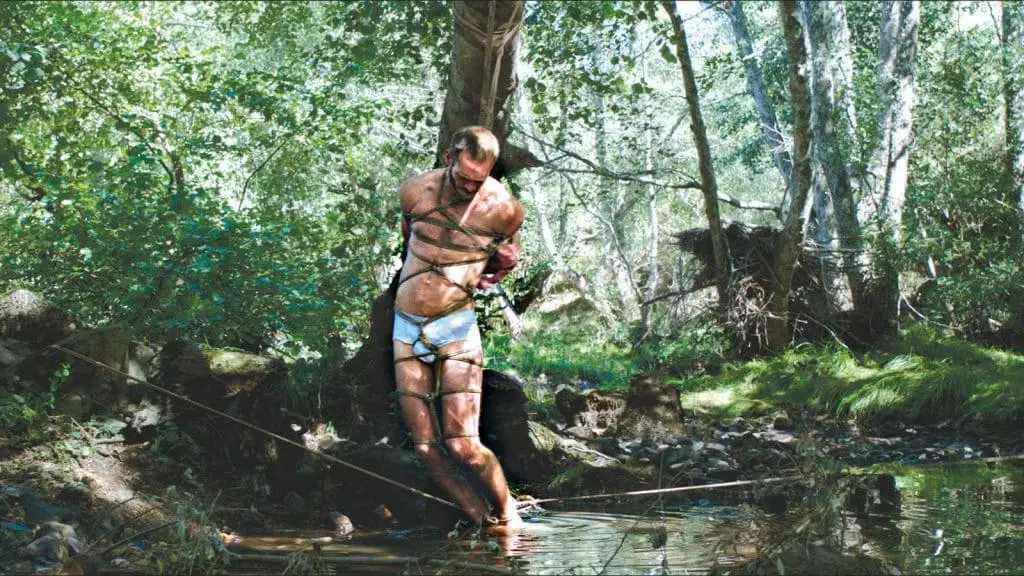
Remember back in the late nineteen hundred and nineties when two handsome boys from Bahston arrived on the scene and wowed everyone with an original screenplay about a socially challenged blue-collar genius also from Bahston? And then afterward, everyone debated which of the two handsome Bahstonites was the most talented? And remember how, for a long time, all signs pointed to it being the blond one?
These days, I’m starting to believe we had it all wrong. Ben Affleck is still not a great actor, but somewhere along the way he became a good one. He also became a great writer and director, while Matt Damon plateaued. Now it seems that Damon is on a gently sloping downward trajectory; first with the treacle-laden “We Bought a Zoo” and now the face-slap of a morality tale that is “Promised Land.”
Now before you go accusing me of having no heart, I should tell you that I love both Matt Damon (usually) and the environment. Furthermore, I hate greedy capitalist behemoths that want to exploit simple farm folk and rape the land (grrrr). But that doesn’t mean I have to like a mediocre film about a greedy capitalist behemoth that wants to exploit simple farm folk and rape the land. “Promised Land” is an insulting delivery system for what would otherwise be a very valuable social message about the dying American Heartland.
The credits read like fantasy indie film draft picks: Directed by Gus Van Sant. Screenplay by Matt Damon and John Krasinski based on a story by Dave Eggers. Starring Damon, Krasinski and Frances McDormand with Rosemarie Dewitt thrown in just cuz a man can’t have true redemption unless a beautiful woman decides to love him. Damon plays career spin-doctor Steve Butler, a salesman for Global Crosspower Solutions (a name as ominous as it is vague). Global (Mr. Crosspower Solutions was its father’s name) seeks to buy drilling rights for America’s farmland in order to access the lucrative natural gas that lies beneath. Steve would be (and is) the first to tell you that he’s not a bad guy. He’s just a simple farm boy himself, hailing from a small Iowa town financially ruined after their primary industry (a Caterpillar plant) went under. He wants to make sure that doesn’t happen to any other small towns. He wants so badly to help, that he’s willing to sink to incredible depths of self-delusion in order to justify his job (emphasis on the word “incredible”). For a slick corporate shill, he’s more a rube than the local yokels he’s trying to swindle.
And that’s the point. In case you missed it (which you couldn’t possibly), Steve has been buying his own bullshit for too long. So much so that he completely crumbles whenever anyone challenges him. The writers borrow liberally from the plot of “Doc Hollywood” to deliver their messages about the dangers of corporate greed in general and fracking in particular. They assert that these are gray area issues, whilst drenching everything in black and white.
Presumably, Steve has brought his show to small towns all across the country. Yet somehow, the town of McKinley, PA is the first one to give him any trouble. His method of looking and talking like one of them is normally foolproof. But once a grizzled old science teacher (Hal Holbrook) calls him out on the dangers of fracking, Steve, along with his cynical partner, Sue (McDormand) must embark on a door-to-door campaign to win the town’s people back before the issue is put to a vote. An environmental activist named Dustin (Krasinski) poses additional challenges as he both literally and figuratively c**k blocks Steve’s efforts.
It’s not all bad news. A talented cast acts its way around the ham-handed script. Krasinski is so believable in his role that it’s tempting to shout, “No! I don’t have a minute for the environment” at him whenever he’s on screen. McDormand uses her extremely expressive face to add complexity to her hard-nosed business lady character. Sadly, Rosemary Dewitt couldn’t save her character from Blandville, as she didn’t have much to work with. As a sweet schoolteacher named Alice, her character is perfectly content playing a pawn in the pissing contest between Steve and Dustin. One gets the distinct impression that Alice really doesn’t care with whom she ends up and she never seems to have much of an opinion about anything.
Damon saves most of the meat for his own character. He’s not too shabby playing a man who resists having his bubble burst even as the pin is puncturing the surface. That’s one thing they got right. People don’t usually have life-changing revelations over night. It takes time and lots of people telling you that you’re wrong before you start to believe it. Some will even take their skewed world views to their graves. Of course, we know that won’t happen here.
As a Commie liberal, it pains me to find so much fault with “Promised Land.” Those boys have a lot of good ideas and I know they mean well. Perhaps they’ve seen too many Hollywood Schmaltzfests to understand how to get their point across subtly. Furthermore, they don’t seem to have ever met any actual women because they have no idea how to write them. If you see only one film this year by a handsome actor from Bahston, make it “Argo.”



Jessica- as (almost!) always, I totally respect your opinions but I think you and most others are unfairly dismissing this film as “a message movie” and I think it’s anything BUT that. It’s actually a very sneaky and devious film that’s a slap at the current state of America rather than some environmental show down thing.
I mean, the farmers in the film (and, in life) are failing miserably and there’s really no reason to stay on their land except for pride and no where else to go. They’re being offered a way out and that’s not only a valid point in the movie and in life, it’s also Damon’s characters motivation. Had his hometown been offered hundreds of thousands or even millions to get the hell out of dodge before the local plant shut down, his hometown would still be around.
But obviously fracking can destroy the environment even though that’s not the case “always.” So if an agency comes in and gives you hundreds of thousands of dollars (or, millions) and you can move somewhere else while they “rape” your land, is that a “bad” thing? As is stated in the movie (and is again, true in life) most of these failing farms are on government assistance and that assistance gets lower and lower each month. If “we” as a nation can’t even support the people who used to put food on our tables, why the hell should they continue to work land that doesn’t give them food for THEIR tables?
Anyway, those are my thoughts on the film. If I were in the farmers position, I’d have a lot to think about and weigh. I thought the film laid that stuff out really well and I loved the characters. I thought the theme was get the facts and think for yourself and make an informed decision rather than a message of “fracking is bad.”